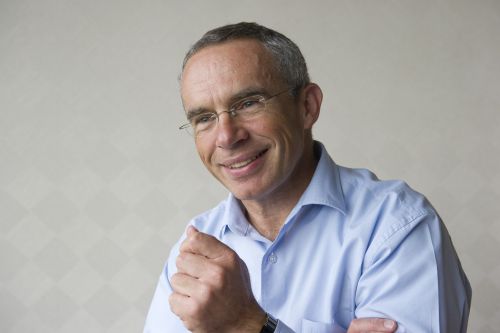
Vodacom’s share price shot up 4,5% on Wednesday after it said a solid performance at its key SA subsidiary and strong growth in demand for data bolstered its numbers in its third financial quarter.
The group released a trading statement for the quarter ended 31 December 2010 on Wednesday, revealing an increase in revenue of 5,6% in constant currency over the same period last year. In rand terms, the group increased revenue by 3,9%, from R15,4bn to R16bn.
Vodacom CEO Pieter Uys says the SA operation was a “star performer”, turning in revenue growth of 4,7% over a year ago.
The data segment continues to enjoy strong growth in SA, says Uys, with sales in this area climbing 33,8% from a year ago, to R1,7bn for the quarter.
Uys says the company added another 780 000 customers during the quarter, increasing its total broadband user base to 8,1m. He says 2,1m of those customers use data bundles.
The boom in smartphone sales has also continued, with the number of active devices on the company’s network increasing 71,8% to 3,1m over last year’s figures. Uys says an effective drop in data tariffs of 13,9% has helped to stimulate the growth in the segment.
At Vodacom’s interim results presentation in November, Uys revealed that data had overtaken voice as the main type of traffic traversing Vodacom’s network. The growth in data comes on the back of heavy investment in broadband infrastructure, including new, high-speed third-generation base stations and fibre backhaul networks.
Top-line growth in SA came in spite of pressure from falling interconnection revenues — the money other operators pay it when their subscribers call Vodacom customers. These revenues fell 15,6% on the back of voluntary cuts in the rates.
In March last year, Vodacom, MTN and Cell C agreed to lower peak-time termination rates from R1,25/minute to 89c/minute. This cost Vodacom R418m in revenue in the third quarter. The rates will fall again on 1 March.
The impact is in line with what Vodacom reported at its interim results presentation in November last year, with its revenue for the six months to September 2010 reduced by about R800m as a result of the cuts. The total impact on profit reported at its interim results was about R260m.
During the third quarter, Vodacom SA added 1,4m customers, increasing its subscriber base to 15,3m. The vast majority — 1,2m — of those customers were prepaid users, proving the effects of the Sim card registration laws implemented last year have almost completely normalised.
The company is also enjoying strong growth in average revenue per user, which was up 17,9% over the same three-month period a year earlier.
In a bid to match new branding from some of its SA rivals, Vodacom has also put aside R200m which it will spend on a new brand identity and improving its customer service. Uys says the new branding — which will be more closely aligned with parent Vodafone’s — will probably be revealed before May, when it reports its annual results.
Though Vodacom SA is healthy, some of the group’s international operations are still proving problematic.
A shareholder dispute between Vodacom and Congolese Wireless Network (CWN), the 49% shareholder in Vodacom’s operation in the Democratic Republic of Congo, has still not been resolved.
Rothschild & Sons, which was appointed last year to explore options for the Congolese operation, has not yet made a recommendation to the group.
However, Uys says that all options are being explored, including the possibility of Vodacom selling part of its stake in the business, buying CWN’s 49% stake, or even completely disinvesting from the troubled central African nation. “We still hope to have a firm decision by financial year-end,” says Uys.
Pan-African subsidiary Gateway also remains problematic. Last year, the group decided to split Gateway into two businesses, creating Vodacom Business Africa, a services business, and a separate voice business. “That has now been completed,” says Uys.
However, the global economic downturn and increased competition across Africa has forced Vodacom to rethink its strategy. “The business is still important to us, at least the Vodacom Business portion of it,” says Uys.
He says the group is looking at several options on the voice side, including the possibility of a sale. Again, he says there should be more detail on the matter at the annual results presentation in May. — Candice Jones, TechCentral
- Subscribe to our free daily newsletter
- Follow us on Twitter or on Facebook




